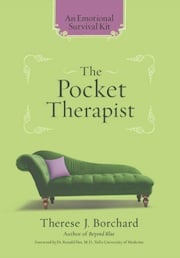Dr. Jon LaPook, chief medical correspondent for the CBS Evening News, penned an important post on the Huffington Post about OCD. For his CBS segment, he interviewed Jeff Bell, KCBS radio broadcaster and author of “Rewind, Replay, Repeat: A Memoir of Obsessive Compulsive Disorder” and “When In Doubt, Make Belief: Life Lessons from OCD.”In his Huffington Post piece, Dr. LaPook writes:
“It’s my OCD.” I hear that on and off from friends and patients who half-jokingly use the term to describe overly careful behavior (such as double-checking to make sure the stove is off) but don’t actually have obsessive-compulsive disorder. True OCD can be a devastating disease. Patients have intrusive, uncontrollable thoughts and severe anxiety centered around the need to perform repetitive rituals. They can be physical such as hand washing or mental such as counting. The behavior significantly interferes with normal daily activities and persists despite most patients being painfully aware that the obsessions or compulsions are not reasonable.
OCD affects 2-3 percent of the world’s population. We’ve seen characters with the disorder portrayed in television (e.g., Tony Shalhoub’s Adrian Monk) and in film (e.g., Jack Nicholson’s Melvin Udall in As Good As It Gets). Yet it’s still associated with stigma, shame, and an alarming level of ignorance by many health professionals. On average, people look for help for more than nine years and visit three to four doctors before receiving the proper diagnosis. In an excellent review article on the subject, Dr. Michael A. Jenike, offers three helpful screening questions: “Do you have repetitive thoughts that make you anxious and that you cannot get rid of regardless of how hard you try?” “Do you keep things extremely clean or wash your hands frequently?” And “Do you check things to excess?” He suggests that answering “yes” to any of these questions should prompt an evaluation for possible OCD. Of course, these are just screening questions and keeping a spotless kitchen doesn’t mean you have a disorder.
To read his piece, click here.
To read more Beyond Blue, go to http://blog.beliefnet.com/beyondblue, and to get to Group Beyond Blue, a support group at Beliefnet Community, click here.
To subscribe to “Beyond Blue” click here.
![]()

